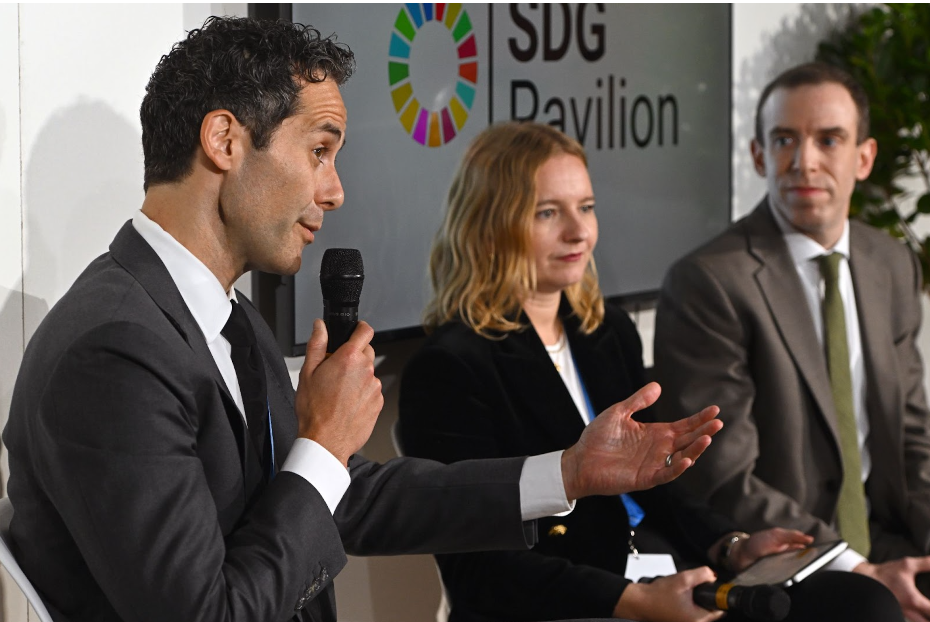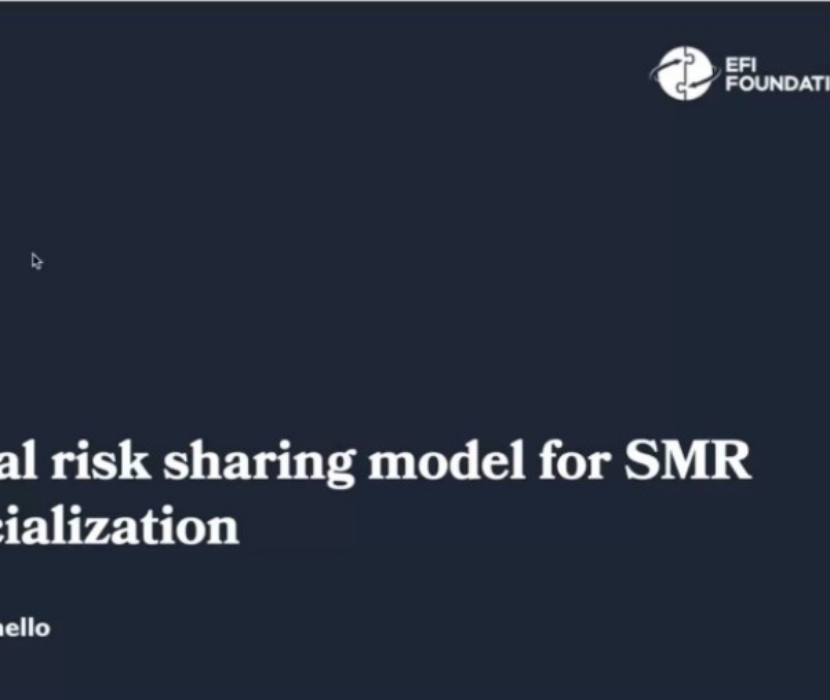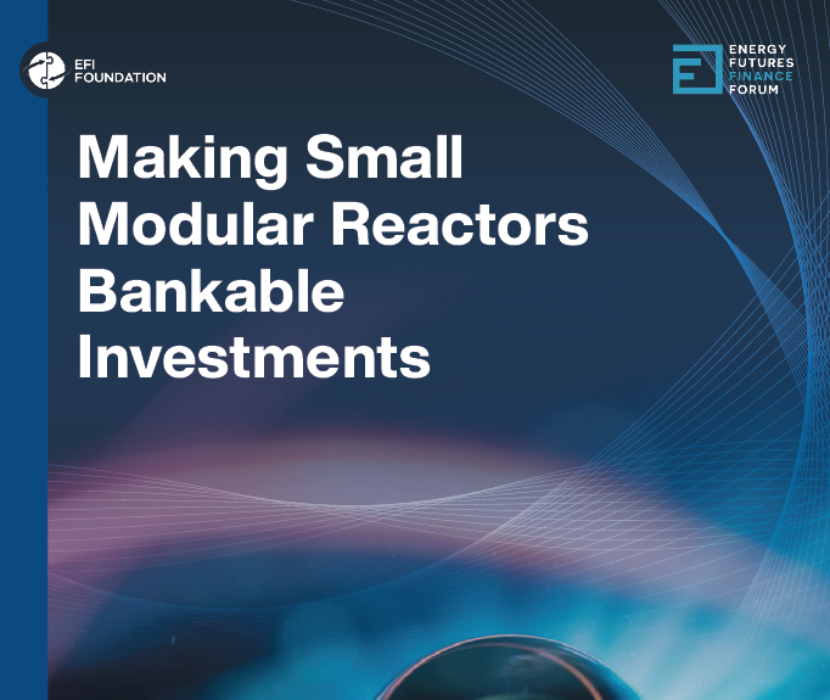
Photo Credit: Dean Calma / IAEA
Hailed as the “finance COP,” bankability and finance of low-carbon energy technologies were at the core of many engagements throughout the 29th Conference of the Parties to the U.N. Framework Convention on Climate Change (COP29) in Baku, Azerbaijan the past two weeks.
Nuclear energy is steadily claiming its rightful place on the global stage as a solution for climate change and for its ability to provide reliable, low-carbon, energy around the world. Discussions about the deployment, scaling, and financing of nuclear energy have been welcomed with relatively open arms—despite the technology sometimes being viewed as part of the problem, not the solution, at past global climate summits.
Nuclear commitments have increased significantly in recent years, most prominently at COP28, hosted in 2023 in Dubai by the United Arab Emirates. At COP28, over 20 countries, including the United States, pledged to triple nuclear energy capacity globally by 2050 and called for international financial institutions to include nuclear energy in energy lending policies. Fourteen major global banks and financial institutions listened to the call at Climate Week in New York City in September 2024, where they expressed support of the declaration. More recently, six more countries endorsed the seminal declaration at COP29, bringing the total to 31.
While international nuclear energy commitments may be changing on the international stage, and major financial institutions have begun to express support for the technology, costs remain a concern and the technology is still seen as a relatively high-risk investment. EFI Foundation (EFIF) was on the ground in Baku, engaging in discussions to change that narrative.
On November 11, EFIF Senior Vice President for Strategic Initiatives, Stephen D. Comello, joined a panel discussion hosted at the U.N. SDG Pavilion at COP29 entitled, Enabling the Future: Financing Small Modular Reactors for the Energy Transition, featuring panelists from the Nuclear Threat Initiative and Clean Air Task Force. During the conversation, the speakers explored innovative financing and risk-sharing strategies for small modular reactors (SMRs). The panel spoke to a packed room, highlighting innovative ways to obtain further nuclear financing, attract private capital, and explore public-private risk-sharing strategies. The discussion featured insights from a new EFIF report, Making SMRs Bankable Investments, where Comello and coauthors provide actionable policy recommendations to address barriers to the formation of investment-grade “orderbooks” for SMRs in the U.S. context that could be applied broadly.
Building on the enthusiasm and need for investment in low-carbon technologies, COP29 was focused on the imperative to address financial barriers to global climate action. This year’s conference underscores that achieving global decarbonization goals requires not just political determination but also an extraordinary mobilization of financial resources.
To support the acceleration of finance mechanisms for clean energy at COP29, EFIF’s Comello also joined the Green Finance: Overcoming Challenges, Seizing Opportunities panel, hosted at the Greece Pavilion by the Hellenic Ministry of Environment and Energy and the Athens Riviera Forum on November 12, where speakers explored pathways to finance a climate-resilient economy. Comello joined the discussion with Harry Boyd-Carpenter, Managing Director for Climate Strategy and Delivery at the European Bank for Reconstruction and Development; Irene Heemskerk, Head of the Climate Change Centre at the European Central Bank; Nikolas Voutychtis Chief Investment Officer at the LATSCO Family Office S.A.; and Dionissis Alissandratos, Chairman and Managing Director at Sirec Energy S.A. The panel was moderated by Antigoni Lymperopoulou, Chief Executive Officer of the Hellenic Development Bank of Investments, and was led by a brief keynote address from Aristotelis Aivaliotis, General Secretary for Energy and Mineral Resources, Ministry of the Environment and Energy, Hellenic Republic.
Panelists discussed the financial strategies required to build investments in both clean energy and climate resilience measures. Comello highlighted the need to engage strategic investors while including industry in dialogue about these investments: “8% of the [investable capital] goes into growth equity, but 50% of the solutions that we need to decarbonize don’t exist and need to be invented and scaled up. It can’t just be the financial industry that makes these investments, but also the companies that are going to use the technologies; they need to get into the game as well,” he said during the panel. “Bringing [private, public, and strategic investors] together—that is where you are going to get that growth equity that is desperately needed to essentially take those demonstrations and turn them into products and services that actually can scale.”
Although financial mechanisms to support low-carbon technologies, such as green bonds, are already in place, Comello emphasizes that they alone are not sufficient. Green bonds can help scale existing technologies to next-gen capacities, but transitioning innovations from the lab to demonstration and, ultimately, into full deployment requires robust public-private partnerships. Public-private partnerships and collaboration are essential to unlock government grants, loans, and other incentives often absent from traditional green bond frameworks, he said.
COP29 reinforced the urgent need to develop public-private financial mechanisms as an engine for advancing global decarbonization. These mechanisms are required to pool necessary growth equity, mainly by the private sector, to scale these needed innovations into fully commercialized solutions. As the world looks ahead to COP30 in Belém, Brazil, the focus on cross-sector collaboration and sustainable investments will remain paramount. The outcomes of COP29 have set the stage for shaping the next chapter of climate action, underscoring that achieving global climate goals demands not only political commitment but also bold, coordinated financial solutions.
– Lizi Bowen, Deputy Director, Communications
(Share this post with others.)




